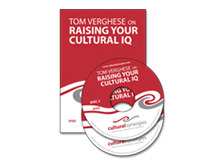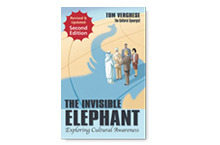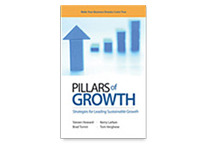 |
| THE CULTURAL SYNERGIST |

While on a recent visit to a local shopping centre I took a break and was enjoying a coffee, gazing at my fellow shoppers when I noticed a lot of pedestrian traffic at the top of an escalator. I noticed that an African woman was very hesitantly attempting to step onto an escalator, only to get close and then step away again. Watching her it was obvious that she didn't feel comfortable with escalators, quite possibly had never ridden one and might prefer to take the stairs! Her family spent quite some time traveling up and down the escalators demonstrating to her its ease and safety. Eventually she conquered the escalator and was very clearly pleased with her accomplishment.
As I observed the apprehension, fear, satisfaction and pleasure that the woman on the escalator underwent; it reminded me of the benefits of external support structures and personal courage required to confront new challenges. If you would like to read or follow our Cultural Intelligence Blog go to:
http://culturalsynergies.wordpress.com Best Wishes Tom Verghese Send to Friend |
||||
| How Brave Are You? | ||||
 |
||||
|
|
This month I am recommending a book that was published in 1998 but still offers relevance and contemporary discussions and dilemmas. Morgan provides a brilliant discussion around the challenges of navigating through cross-cultural ethics through personal stories of leaders working in global organisations. The book takes an inside look at the dilemmas of leaders who are asked to make profits ethically according to their company's ethics code. It examines what companies 'think' they are doing to assist leaders in those situations and how those leaders are actually affected. Morgan provides a clear roadmap for global leaders who need to communicate their commitment to integrity and accountability to their employees, their partners, and their customer base. As I continue to deliver workshops on cross-cultural ethics, I believe ethics and integrity are at the core of sustainable and long-term success for organisations. |
|||||
| RECOMMENDED BOOK: " Negotiating Cross-Cultural Ethics: What Global Managers Do Right to Keep from Going Wrong." By Eileen Morgan (1998). |
||||||
 |
||||||
|
|
RESOURCES 'Raising Your Cultural IQ - DVD and CD 'Raising Your Cultural IQ' explores the issues around culture, the challenges that culture can pose and provides some great strategies on how to leverage on cultural differences and similarities. 'The Invisible Elephant - Exploring Cultural Awareness' Book testimonial by Asma Ghabshi Visit our store here
|
|
 |
||
 |
||
 |
||
 |
|